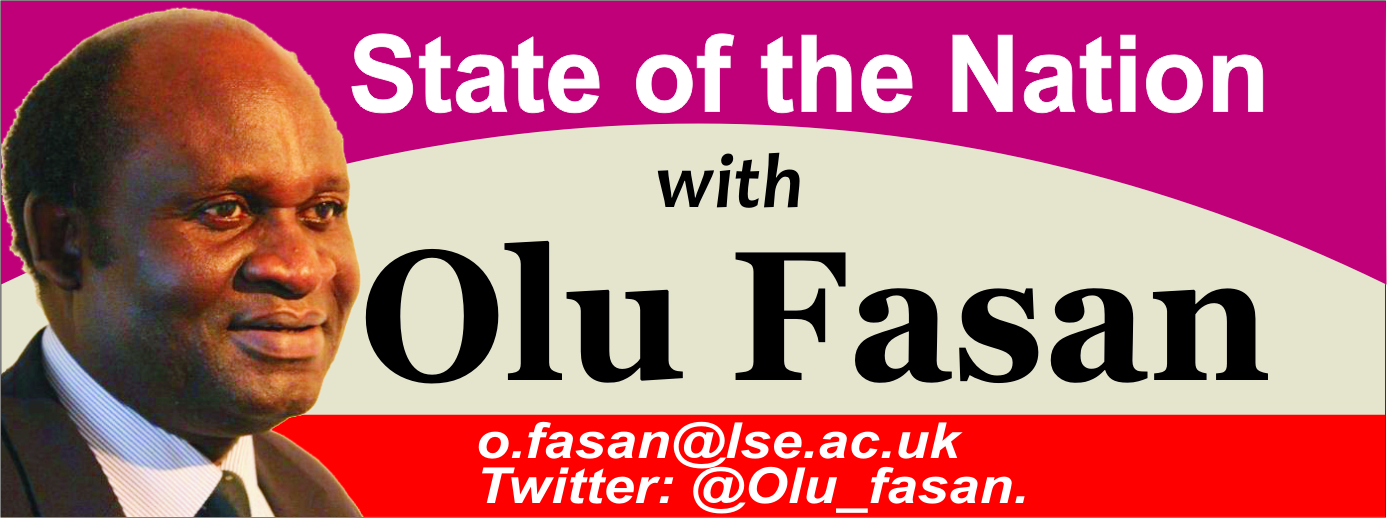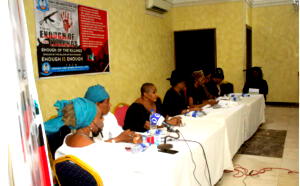By Olu Fasan SINCE leaving office in 2015, former President Goodluck Jonathan’s stock has risen sharply. Deeply unpopular in office, he is...
By Olu Fasan
SINCE leaving office in 2015, former President Goodluck Jonathan’s stock has risen sharply. Deeply unpopular in office, he is widely feted out of power. The main reason, of course, is that he wisely conceded defeat in an election he lost. Given how, recently, a defeated American president refused to concede but, instead, incited insurrection against the US Capitol, Jonathan’s decision was significant. Had he not conceded defeat in 2015, he would have set Nigeria on fire. His decision to concede earned him a post-defeat sainthood.
The second reason for Jonathan’s popularity is that his nemesis, President Muhammadu Buhari, who denied him a second term in office, has turned out to be even worse. In a recent piece titled “Buhari makes a hero of Jonathan”, the renowned columnist Sonala Olunhense wrote: “The more incompetent Buhari’s government has proved to be, the better he has rehabilitated and polished Jonathan’s image.” Olunhense is right. Jonathan puts Buhari in the shade and is looking like a sage!
Well, time heals, and memory is short, but lest we forget: Jonathan ran one of the weakest and most rudderless administrations in Nigeria. Earlier this week, former President Olusegun Obasanjo responded, yet again, to criticisms that he imposed weak successors on Nigeria. He said: “I admit that Jonathan was not a strong character”, adding, “but he was not a pushover.” Truth is: Jonathan was, as president, a pushover.
He, rightly, appointed seasoned technocrats into his government, but failed utterly to provide political leadership. There’s a saying that you can delegate authority but not responsibility. Jonathan did both. As a result, some of his ministers ran amok, overreached themselves and turned their ministries into fiefdoms, which hugely tarnished his administration, and badly hurt Nigeria.
But Jonathan had another weakness: he lacked analytical prowess. He looked at issues superficially. I mean, he famously said there was no corruption in Nigeria but stealing. He either had not heard of grand corruption, political corruption and administrative corruption or didn’t believe they existed in Nigeria. Yet, his finance minister, Dr. Ngozi Okonjo-Iweala, later wrote a book entitled, Fighting corruption is dangerous, which details how all the three types of corruption were pervasive in Nigeria under his administration.
Jonathan also famously said there was no poverty in Nigeria. In 2014, when the World Bank ranked Nigeria among the five poorest nations, Jonathan retorted, angrily: “If you talk about ownership of private jets, Nigeria will be among the first ten countries, yet they are saying that Nigeria is among the five poorest nations”.
So, here’s a president measuring the wealth of his country by the number of its citizens who are billionaires or own private jets. Dr Okonjo-Iweala recalls that when she met Jonathan to discuss her appointment, “he kept saying he did not know economics.” Fair enough, at least he was honest! But no economic illiteracy can justify a president reducing the prosperity of his people to the number of billionaires with private jets.
ALSO READ: Two family members die after consuming local concoctions in Kano
This track record of shallow analysis came to mind recently as I read Jonathan’s remarks as chairman of Daily Trust’s 18th Dialogue themed: “Restructuring: Why? When? How?”A front-page report in this newspaper was headlined: “Restructuring: Jonathan disagrees with Nwodo, Adebanjo, Jega” (Vanguard, January 22, 2021).
Essentially, while Chief Ayo Adebanjo, elder statesman and chieftain of Afenifere, Chief John Nwodo, immediate past president-general of Ohanaeze Nd’Igbo, and Professor Attahiru Jega, a renowned political scientist and former chairman of the Independent National Electoral Commission, INEC, made a compelling case for restructuring Nigeria, Jonathan struck a discordant note. Not now, he said!
At one level, this raised questions of political integrity. In 2014, the same Jonathan set up a national conference attended by about 500 delegates and that cost over N7 billion. The conference produced a report that, if implemented, would bring Nigeria closer to true federalism. In 2015, during a campaigning trip to the South West, Afenifere leaders said they would only support his re-election if he vowed to implement the report, if re-elected. To reassure those leaders, Jonathan suspended his campaign and convened an emergency meeting of the Federal Executive Council to approve the implementation of the report.
So, why did he spend N7bn on the national conference, and why did he get the Federal Executive Council to approve the implementation of its report, if he does not believe Nigeria should be restructured. Obviously, he was motivated by political calculations, not conviction politics, which says a lot about his character.
Now, his logic. Jonathan said Nigeria cannot be restructured until there’s no more tribalism. Shocking! Doesn’t he know that it’s precisely Nigeria’s deeply flawed structure that breeds tribalism? In his book There was a country, Chinua Achebe wrote: “The structure of the country was such that there was in-built power struggle among the ethnic groups.” Surely, when you have a multi-ethnic country in which the structure of power and governance is not fairly balanced but centralised and lopsided, you will have intense conflict over power and resources, which will fuel ethnic differences and divisive politics.
Is Jonathan not aware of what’s going on in other multi-ethnic countries, including Britain, which created Nigeria? Recently, the Sunday Times published a report titled, “Revealed: Our disunited Kingdom”, which showed “rising support for a break-up of the UK.” When asked, 56 per cent in Scotland said they’re more Scottish than British; 45 per cent in Northern Ireland are more Irish than British; 36 per cent in Wales are more Welsh than British; and 27 per cent in England are more English than British. As Times columnist Alex Massie put it: “The UK is, in a quite literal sense, dying”, adding: “The future hinges on identity.”
But the prevailing discourse in Britain is about saving the 313-year-old union, with ideas coalescing around a grand constitutional settlement, leading to autonomous nations and regions. Sadly, in Nigeria, Jonathan says tribalism must end first before the country can be restructured. What a twisted logic and shallow reasoning!
The post Jonathan’s about-face and twisted logic on restructuring appeared first on Vanguard News.


No comments